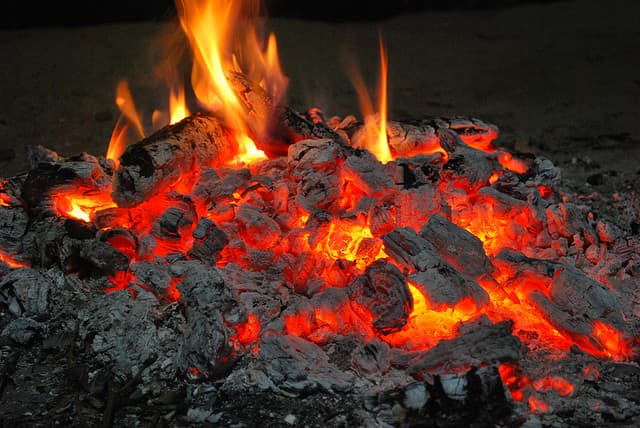New Discovery Provides Earliest Evidence of Human Ancestors’ Campfires
OutdoorHub Reporters 04.03.12

“It began in Africa.” Archaeologists from Boston University are celebrating a find of a lifetime in South Africa. The archaeologists found ash of grass, leaves and bone fragments at a depth of 30 meters in Wonderwerk Cave in the Northern Cape Province of South Africa.
It’s been difficult for scientists to pin down the first time humans had the ability to control fire. This find is the first firm evidence of our ancestors’ use of fire and it suggests that they may have used it to cook as far back as one million years ago. The ability to cook is an argument for our larger brains and an evolved digestive system that set humans apart from the rest of the animal world.
Other experts and scientists argue that there has been evidence of fire from as long as 1.5 million years ago; some say that it was even earlier than that, but skeptics say the fire remains could have been from open sites that were ignited by lightning. This find is not privy to such skepticism as it was found 30 meters inside the cave. According to a report by Nature, “the cave shows traces of having been lived in from almost two millions years ago.”
The area where the campfire was found was far enough away from lightning strikes and has tested negative for bat faeces, as large piles of rotting guano can become hot enough to ignite spontaneously. That could challenge the claim that humans started the fire. Researchers are not sure what species of hominin inhabited the cave, but the team that found the campfire believe it to be Homo erectus.
The addition of cooked meat in our ancestors’ diets is believed to have increased their nutritional intake due to the fact that cooked meat is easier to digest. In turn, their brains grew thanks to the additional energy and protein intake, and they conserved even more energy by exerting less effort on foraging/hunting and eating/digesting.

